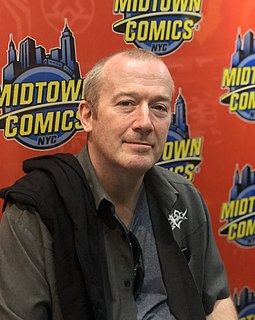A Quote by Greg Rucka
Emotional honesty transcends reality; it's what allows disbelief to be suspended and yet what makes a story stay true.
Related Quotes
There are, however, exceptions to this reliance on feelings as evidence of truth: if, for instance, your feelings lead to disbelief instead of belief, they're apt to be dismissed as some form of denial. This is not a common problem. Usually intellectualism, not feeling reality, is blamed for disbelief. But, some angel experts suggest, there may be emotional as well as intellectual barriers to belief: unwillingness to believe in angels can reflect low self-esteem.
I'll say, what makes me happy about making movies is, every once in a while through movies we find a kind of honesty. There's an honesty in fiction that's as effective or even more powerful than the honesty of our lives. We can find something that's genuinely true, like a chemistry between people or a statement that speaks to an audience.
For any true stickler, you see, the sight of the plural word “Book’s” with an apostrophe in it will trigger a ghastly private emotional process similar to the stages of bereavement, though greatly accelerated. First there is shock. Within seconds, shock gives way to disbelief, disbelief to pain, and pain to anger. Finally (and this is where the analogy breaks down), anger gives way to a righteous urge to perpetrate an act of criminal damage with the aid of a permanent marker.
What really happens is that the story-maker proves a successful 'sub-creator'. He makes a Secondary World which your mind can enter. Inside it, what he relates is 'true': it accords with the laws of that world. You therefore believe it, while you are, as it were, inside. The moment disbelief arises, the spell is broken; the magic, or rather art, has failed. You are then out in the Primary World again, looking at the little abortive Secondary World from outside.






































